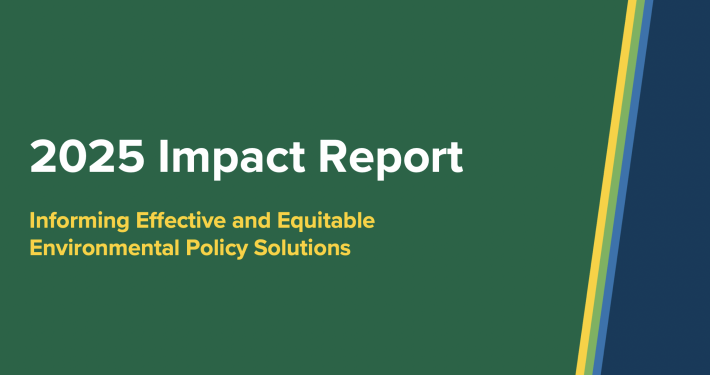July 10, 2023
Luskin and partners awarded $4 million to assess California’s aging wastewater infrastructure
This first-of-its-kind study will inform policy and investment with a focus on providing equitable sanitation services
July 10, 2023
This first-of-its-kind study will inform policy and investment with a focus on providing equitable sanitation services
Wastewater treatment plant. Source: https://bit.ly/3NRkSZq
Californians generate roughly four billion gallons of wastewater each day, according to the Water Education Foundation. How many of the state’s 100,000 miles of sewer lines and more than 900 utility providers and treatment plants provide adequate and equitable service?
A first-of-its-kind study seeks to answer this question and help prioritize policy and investment needed to provide equitable sanitation services. The California State and Regional Water Resources Control Boards (Water Boards) has awarded the UCLA Luskin Center for Innovation (LCI) and its partners $4 million over four years to assess the needs of California’s wastewater systems. Partners include the Office of Water Programs at California State University, Sacramento; the UC Agriculture and Natural Resources system, and the University of Massachusetts Amherst.
The study focuses on achieving the Human Right to Water for all Californians – as the first state in the nation to pass a law enshrining this right – and centering sanitation equity to inform the long-term efforts of the State Water Board.
This effort will help make sanitation equity issues more visible and solvable throughout the state. We hope the assessment can serve as a model for other states, as our work with the State Water Board on drinking water needs has been.
The first phase of the project focuses on convening stakeholders to evaluate the baseline conditions of wastewater infrastructure services in California by:
This work is led by LCI’s Gregory Pierce; California State, Sacramento’s Maureen Kerner; and UC Agriculture and Natural Resources’ Sam Sandoval and Erik Porse. Researchers will collaborate with the United States Environmental Protection Agency, Local Agency Formation Commissions, water boards, advocacy groups, technical assistance providers, and other interested parties.
During the second phase, the researchers will publish tools to map wastewater systems of concern and potential solutions. The University of Massachusetts Amherst’s Emily Kumpel and team will use new machine-learning techniques to identify the locations of likely on-site wastewater treatment systems (most commonly septic systems) to help those communities address their concerns. The broader research team will analyze systemwide needs and the cost of solutions based on Phase I findings and to provide a long-term pathway for the state to provide more equitable services.
To learn more about our latest research, please visit our Human Right to Water Solutions Lab website.
Get our latest research in your inbox.
 The Luskin Center for Innovation welcomes new doctoral researchers
The Luskin Center for Innovation welcomes new doctoral researchers
Learn more about their interests and work.
 UCLA Luskin Center for Innovation 2025 Impact Report
UCLA Luskin Center for Innovation 2025 Impact Report
Informing effective and equitable environmental policy solutions.
 Urban wildfire: water system capacities and limitations
Urban wildfire: water system capacities and limitations
Researchers convene statewide experts to assess firefighting capacity, infrastructure gaps, and policy solutions.

 UCLA research reveals successful model to build and renovate multibenefit parks...
UCLA research reveals successful model to build and renovate multibenefit parks...